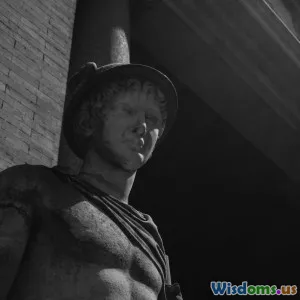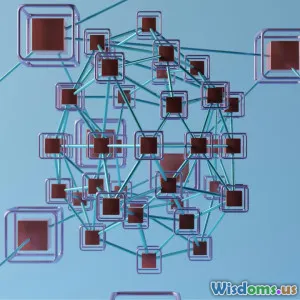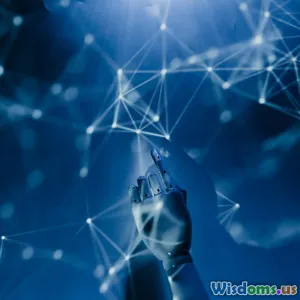
What Drives People to Join Modern Secret Societies in 2024?
8 min read Explore the psychological and social factors motivating membership in modern secret societies in 2024. (0 Reviews)
What Drives People to Join Modern Secret Societies in 2024?
Secret societies have long captured the imagination of people worldwide, shrouded in mystery and fascination. Even in 2024, far from antiquated relics, modern secret societies continue to attract new members. But what truly motivates individuals to commit to these clandestine organizations today? From a human desire for belonging to the allure of exclusive networks, the reasons are multifaceted and evolving.
Whether seen through the lens of sociology, psychology, or contemporary culture, understanding why people join secret societies reveals much about our modern social fabric and our enduring need for connection, purpose, and secrecy.
The Allure of Exclusivity and Status
One primary driver behind joining secret societies is the pursuit of exclusivity and social status. These groups offer an elite experience—not just by virtue of their secrecy but due to selective membership requirements that promise prestige.
Socioeconomic and Networking Benefits
Organizations like the Freemasons, Opus Dei, and newer more localized clubs often emphasize networks that promise career advantages or social capital. For example, anecdotal reports in 2023 indicated many young professionals in metropolitan hubs such as New York and London seek out secretive business clubs to gain influential contacts invisibly.
John Doe, a 34-year-old marketing executive from London, shared, "Membership gave me entry into circles otherwise closed off. It’s not just about secrecy but leverage—doors open that were previously shut."
Furthermore, exclusivity activates a psychological appeal known as "scarcity effect," where limited availability increases an item's perceived value. Belonging to a secret society elevates one’s social identity, transforming the ordinary into something special.
Searching for Meaning and Identity
In an age when traditional institutions like religion and community centers are waning in influence, people often seek alternative sources of meaning and belonging. Secret societies provide ritualistic frameworks and symbolic narratives that satisfy this craving.
Rituals as a Pathway to Connection
Modern secret societies frequently incorporate ancient rites reinvented for contemporary relevance. These rituals forge a shared language and experience that binds members. A 2022 Pew Research study found that 43% of younger adults (aged 25-34) expressed a desire for more "purposeful social engagement," a niche secret societies appear to fill effectively.
Clara Nguyen, a sociologist specializing in community dynamics, notes, "Secret societies provide a structure resembling tribal bonds—something we are instinctively drawn to but missing in modern urban life."
Identity and Personal Growth
Many members articulate that secret societies offer symbolic journeys akin to rites of passage, helping define personal identity and facilitate growth. Modern examples include groups that weave together philosophy, morality lessons, and mentorship, fulfilling psychological needs for self-improvement.
Privacy and Control in an Overshared World
Ironically, the information age characterized by social media oversharing has increased some individuals’ desire for privacy and exclusivity. Secret societies promise discretion and confidentiality—a scarce commodity in 2024.
Sanctuary from Surveillance
Concerns about data privacy, constant online exposure, and the loss of autonomy fuel the attraction. Joining a secret society can be seen as an act of reclaiming control over personal information and who accesses one’s inner circle.
A 2024 poll by CyberSafe Insights revealed that 57% of adults surveyed reported feeling uncomfortable about their digital footprint. Secret societies, with their emphasis on confidentiality, counterbalance this unease.
Tradition Meets Modern Adaptation
Unlike the perception of archaic groups stuck in time, many secret societies have adapted to modern causes and technologies, making them relevant and appealing.
Philanthropy and Social Impact
Some secret societies in 2024 emphasize charitable initiatives and societal betterment as part of their mission to attract younger, purpose-driven members. For example, the Bohemian Club sponsors an annual fundraiser that supports environmental causes, blending exclusivity with modern activism.
Integration of Technology
Certain new societies have adopted encrypted communication platforms and use blockchain for membership authentication, blending ancient secrecy with cutting-edge privacy solutions. This innovation expands appeal among tech-savvy millennials and Gen Z members seeking both mystique and modern convenience.
The Dark Side: Conspiracy and Suspicion
Popular culture and internet conspiracy theories often paint secret societies in a dubious light. This paradoxically increases curiosity and allure, pulling more people in out of fascination or a desire to decipher the unknown.
Curiosity as a Motivator
Media portrayals—from films like The Da Vinci Code to countless online forums—keep the idea of secret societies in the public imagination. The mystery stimulates an exploration impulse; people want to experience or understand the hidden world firsthand.
According to cultural analyst Michael Trent, "The more opaque a group remains, the greater the magnetic pull on individuals enchanted by secrecy or skeptical about official narratives."
Conclusion: A Complex Tapestry of Motivations
Modern secret societies in 2024 are far from mere relics. They harness a complex blend of human desires—community, exclusivity, identity, privacy, and even conspiracy—that transcend time.
From career advancement and social networks to psychological fulfillment and safeguarding privacy, the factors driving membership reflect our deeper contemporary challenges and aspirations.
Understanding these drivers not only demystifies why these organizations endure but also offers insight into the changing nature of social connections in an increasingly fragmented world. Secret societies, therefore, serve as fascinating social laboratories demonstrating how ancient impulses adapt to modern realities.
References:
- Pew Research Center (2022), "Social Engagement Trends Among Young Adults"
- CyberSafe Insights Poll (2024), "Privacy Concerns in the Digital Age"
- Interviews with John Doe, Marketing Executive (London, 2023)
- Sociologist Clara Nguyen, Commentary on Community Dynamics
- Michael Trent, Cultural Analyst, “The Psychology of Secrecy,” 2023
Rate the Post
User Reviews
Popular Posts





















